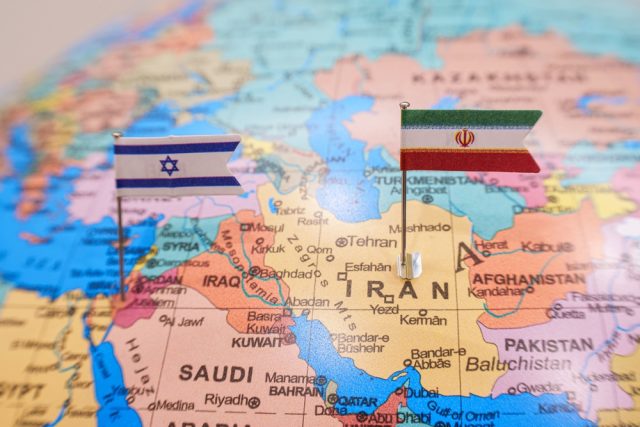
A clear condemnation of the 300 or so Iranian rocket attacks on Israel and a call to avoid escalation in the Middle East region, with particular reference to global security. This is contained in a resolution adopted last week by the European Parliament, which also condemns the simultaneous rocket launches by Iranian proxies Hezbollah in Lebanon and Houthi rebels in Yemen, as well as Israel’s attack on the Iranian consulate in Syria, in Damascus, on 1 April. In fact, Israel attacked the Iranian consulate building in Damascus, killing several Pasdaran: among them was General Mohammad Reza Zahedi, considered the point of unity between the Tehran government and Hezbollah. In this way, the Israelis have demonstrated their ability to hit sensitive targets such as diplomatic missions. That is why the European Parliament has decided to warn Israel, recalling that consular and diplomatic offices are considered inviolable and inaccessible under international law. The risk of escalation has been high for days, with Tehran announcing that it will avenge the deaths of its diplomats. As tensions rose, Iran responded on the evening of 13 April by violating Israel’s borders with hundreds of rockets and drones, which were neutralised thanks to Israel’s air defence systems and the intervention of the United States. For this reason, MEPs decided to extend the sanctions against the Iranian state to include the production and supply of missiles and drones. Another important demand of the European Parliament is the inclusion of Iran’s Islamic Revolutionary Guard Corps on the list of terrorist organisations drawn up by the European Union.
Nuclear weapons and hostages
The non-binding resolution, which was adopted by 357 votes to 20 with 58 abstentions, therefore has a clear intention: to avoid military escalation in the Middle East region and to call on all states and non-state actors to show maximum moderation. Since 13 April, the situation seems to have calmed down, thanks in particular to the intervention of Western countries, which persuaded Israeli Prime Minister Benjamin Netanyahu not to envisage any further response to Tehran. However, tensions were high and are still very high today, particularly because Iran continues to violate various agreements on nuclear energy and hostage-taking, on which the European Parliament has intervened. The European Parliament has urged the Iranian authorities to comply with the requirements and commitments contained in the Joint Comprehensive Plan of Action. Furthermore, with regard to the hostages, the MEPs condemned the use of hostages in diplomacy, treating them as mere bargaining chips, and called on the European Union as a whole to provide support plans for the families of the prisoners and, at the same time, not to increase the number of hostages in the hands of the Iranian authorities. Finally, the resolution adopted by the European Parliament supports the European Council’s decision to launch the ASPIDES operation to guarantee freedom of navigation near the Yemeni coast, while calling on Iran to release the European crews captured in these areas.
A fundamental demand
In conclusion, the risk of military escalation in the Middle East remains high. The deterioration in relations between Israel and Palestine has undoubtedly had a negative impact on the stability of the region, and the possible involvement of other states would further complicate the already complex attempts at dialogue that the Western powers are trying to achieve. Furthermore, Iran, which very often violates the most basic human rights, has a long history of hostile behaviour towards Israel, with relations worsening after the Hamas attack on 7 October last year. This is why the European Parliament has decided to intervene to encourage a de-escalation in the Middle East region and to defend Israel’s right to exist.



 Subscribe
Subscribe